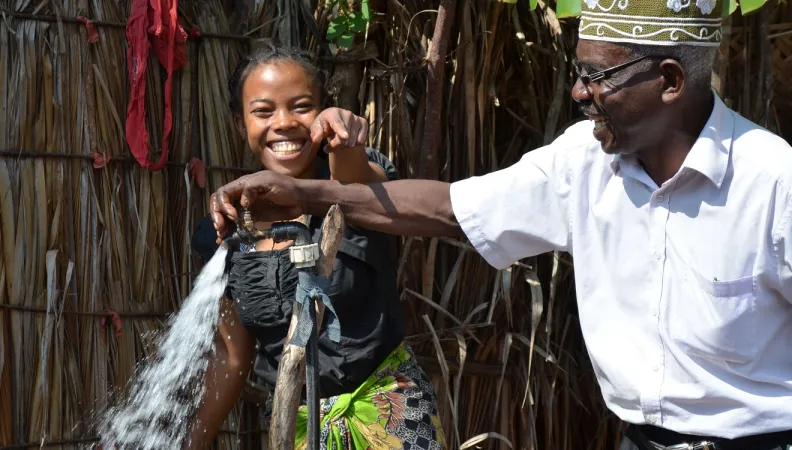Share the page
More than 4 Million People will have Improved Access to Water thanks to AFD-Supported Projects
Published on

In the approach to its 77th session now underway in New York, the United Nations General Assembly adopted a historic resolution declaring access to a clean, healthy and sustainable environment, a universal human right. It’s aimed at improving access to fundamental natural resources like water – something that AFD is working on around the world.
With more than two billion people lacking access to a quality drinking water service at home, and at least one person in three without adequate sanitation, water will continue to be a major challenge throughout the 21st century. What’s more, water shortages and poor quality sanitation facilities affect food security, health and general living conditions.
For AFD Group, water is a vital resource to be protected and managed for the benefit of all. That’s why it is carrying out numerous projects around the world that provide access to water and sanitation, and promote sustainable water management.
Read also: Water and sanitation, AFD Group's 2021 activity report
In 2021, AFD Group provided some €1 billion worth of support for water and sanitation worldwide. This financing and the projects it funds will provide more than 4.6 million people with access to a safely managed drinking water service in the coming years.
That is funding which adds to AFD projects already under way. By the end of 2021, 286 projects were being implemented in the water and sanitation sector, for a total financing amount of €7.7 billion.
Read also: Water management, AFD's action in 12 projects
Recent international campaigns and diplomacy aim to encourage more countries and international organizations to contribute to the expansion of access to healthy natural resources such as clean water.
Last July, the UN General Assembly passed a resolution recognizing the right to a clean, healthy, and sustainable environment as a universal human right. With 161 votes in favour, and eight abstentions, there was no opposition to the resolution, and the Assembly called on States, businesses, and other stakeholders to “scale up” efforts to ensure a healthy and sustainable environment for all. It follows the 2010 UNGA resolution, which recognized for the first time that everyone has the right to water and sanitation.
“That resolution similarly was not legally binding or enforceable, but it was a catalyst for a cascade of positive changes that have improved the lives of millions of people,” said David Boyd, the UN’s Special Rapporteur on human rights and the environment. “States really made it a top priority to deliver on fulfilling their obligations to provide people with clean drinking water.”
With political will, robust financing and international solidarity, millions more will have access to clean water and sanitation in the years to come.
